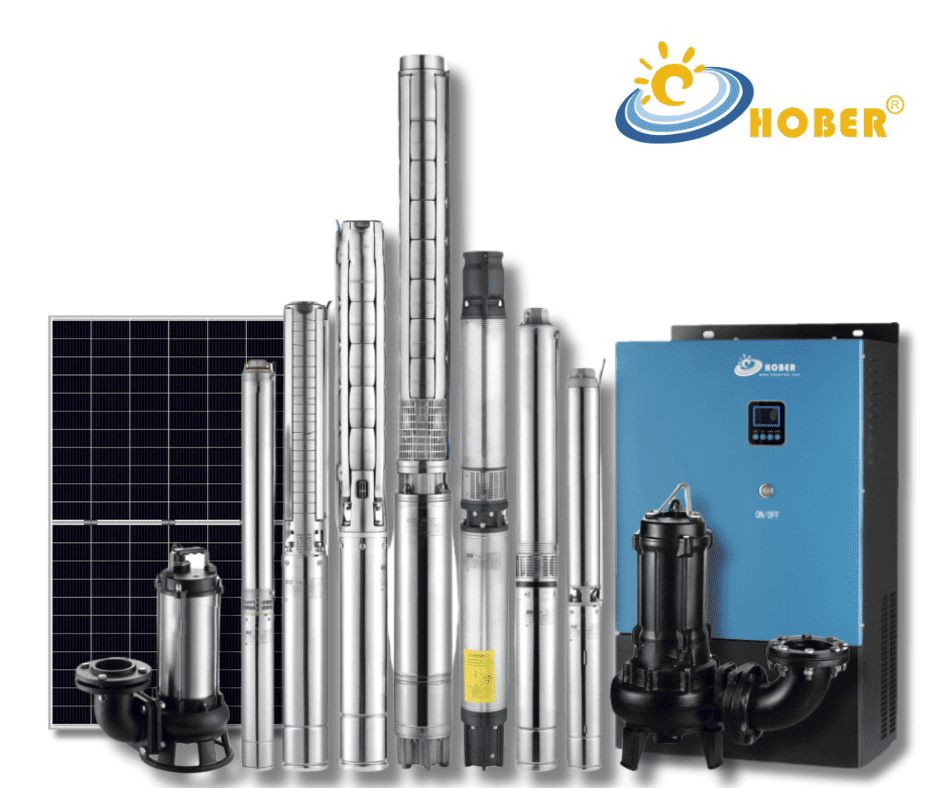In selecting a 3-phase 380V solar water pump inverter, ranging from 0.37kW to 250kW, it’s critical to understand both the key considerations for choosing an inverter and the diverse application scenarios where solar pump systems can be effectively utilized. This comprehensive approach ensures that the inverter not only meets technical specifications but also aligns with the practical demands of its intended use.
Introduction to 3-Phase Solar Pump Inverters
A 3-phase solar pump inverter is a critical component in solar water pumping systems, designed to convert the DC power from solar panels into a three-phase AC output. This conversion enables the efficient operation of three-phase water pumps, which are commonly used in various applications due to their reliability, efficiency, and capability to handle larger water volumes over longer distances or heights.
Power Range and Categories
3-phase solar pump inverters come in two primary voltage categories, catering to different electrical standards and pump requirements:
- 3-Phase 220V Solar Pump Inverter: Suitable for regions with a 220V electrical standard, these inverters are designed for smaller to medium-sized pump applications, providing efficient power conversion for pumps within this voltage range.
- 3-Phase 380V Solar Pump Inverter: Tailored for systems operating on a 380V electrical standard, often used in industrial or large-scale agricultural water pumping applications due to their ability to support higher power pumps and more extensive operations.
Key Considerations for Choosing a 3-Phase Solar Pump Inverter
- Power Range and Efficiency: Selecting an inverter within the 0.75kW to 250kW range, with a focus on systems where the water pump’s power is greater than 3kW, can significantly reduce the number of solar panels required. This approach leverages the inverter’s efficiency to deliver the necessary power while optimizing solar energy use, thus saving on initial costs and space.
- Advanced Dynamic MPPT Function: An efficiency rate greater than 99% and a wide input voltage range ensure maximum solar energy utilization, adjusting to variable sunlight conditions.
- Durability and Environmental Adaptability: With an aluminum casing and IP65 rating, the inverter is built to withstand harsh environmental conditions, featuring speed-regulating heat dissipation for outdoor use.
- Remote Monitoring and Control: RS232, 4G/WIFI capabilities allow for real-time system management and monitoring from anywhere, ensuring operational efficiency and ease of maintenance.
- Hybrid Energy Input Compatibility: The ability to integrate and automatically switch between solar and utility Grid/DG sources, prioritizing solar energy, supports continuous operation and water supply.
- Comprehensive Protection Features: Built-in safeguards protect against a wide range of potential issues, including electrical faults and operational anomalies, ensuring system reliability and longevity.
- Simplified Operation: Fully automatic control and one-key start functionality make the system user-friendly and accessible, even for those with limited technical expertise.
Application Scenarios and Recommendations
These inverters are ideal for applications requiring substantial water pumping capabilities, such as:
- Agricultural Irrigation: Maximizing water delivery for crop cultivation in remote or off-grid areas.
- Livestock Watering: Providing consistent water supply for animal husbandry.
- Community Water Supply: Ensuring reliable access to drinking water in rural settings.
- Industrial Processes: Supporting water needs in manufacturing, cooling, or water treatment operations.
- Landscaping and Urban Water Features: Enhancing aesthetic and environmental sustainability through water conservation measures.
The recommendation to use 3 phase 380v pumps with power greater than 3kW with these inverters not only enhances the efficiency of solar panel use but also ensures that the system is capable of meeting the demands of most water pumping applications, from agricultural irrigation to industrial processes. This strategic approach to system design maximizes the return on investment by reducing the number of solar panels needed and optimizing the overall system performance.
By understanding the power range, types of 3-phase solar pump inverters, and optimal pump power requirements, stakeholders can make informed decisions to implement efficient, reliable, and cost-effective solar water pumping solutions tailored to their specific needs.

